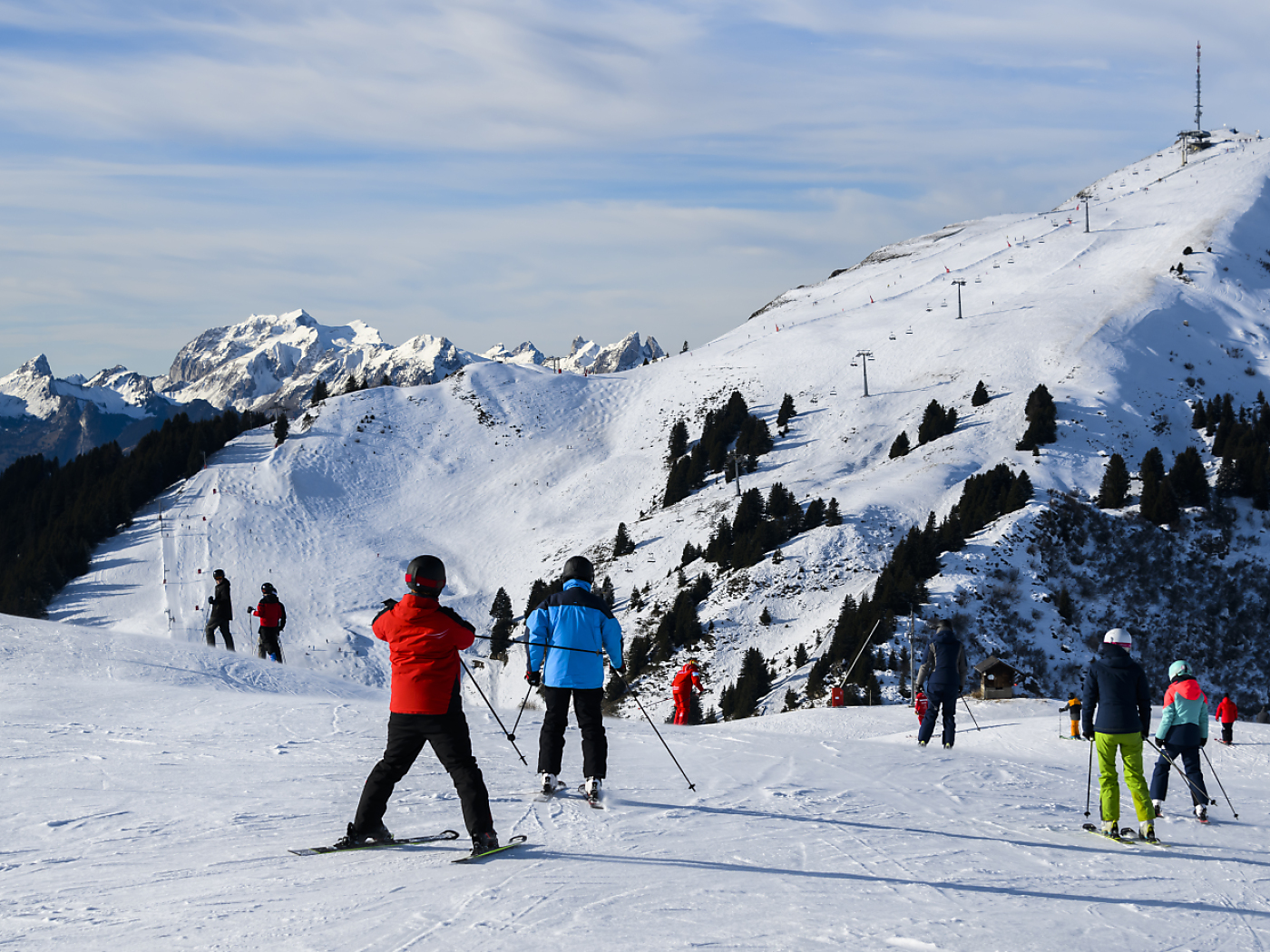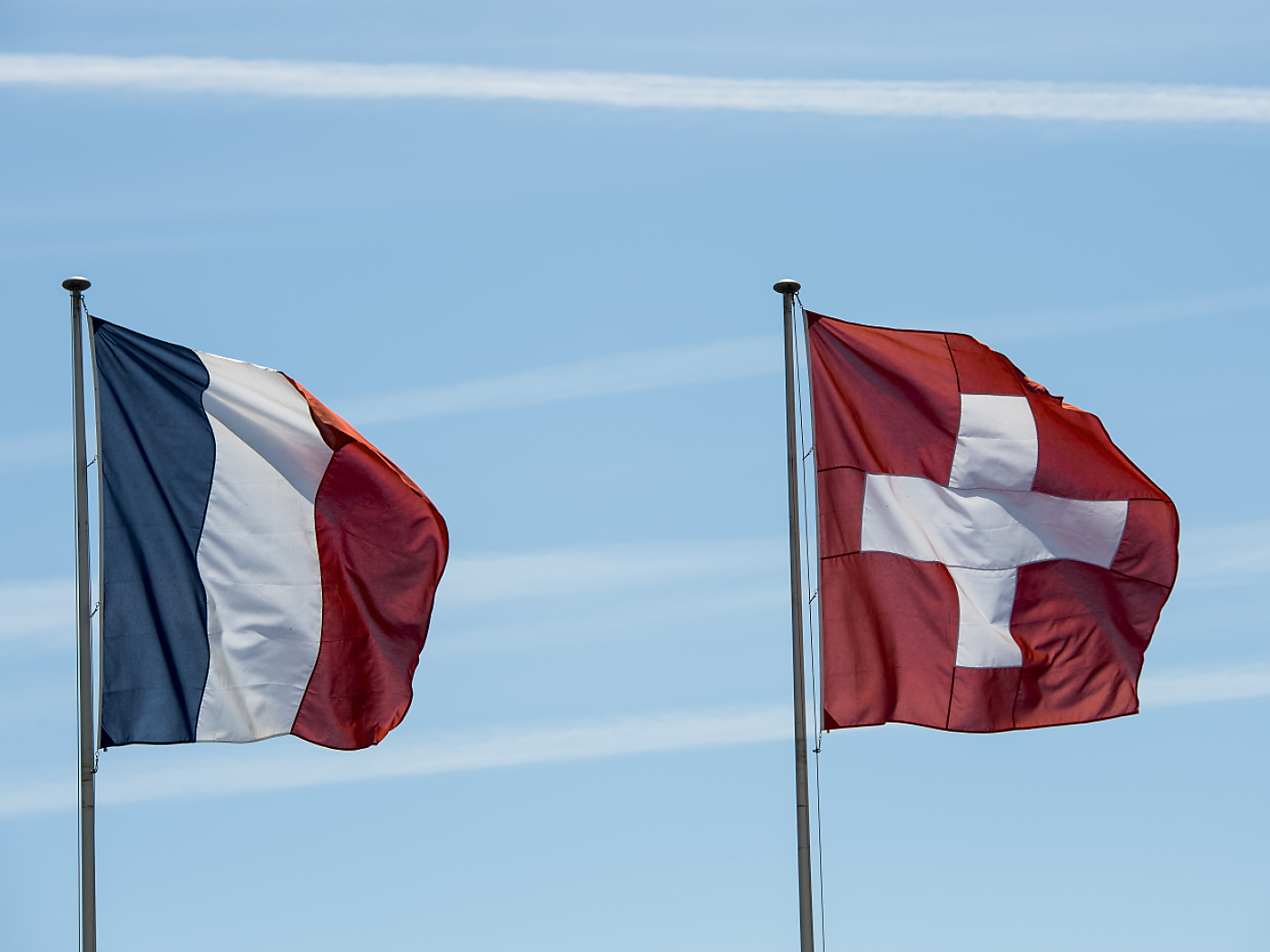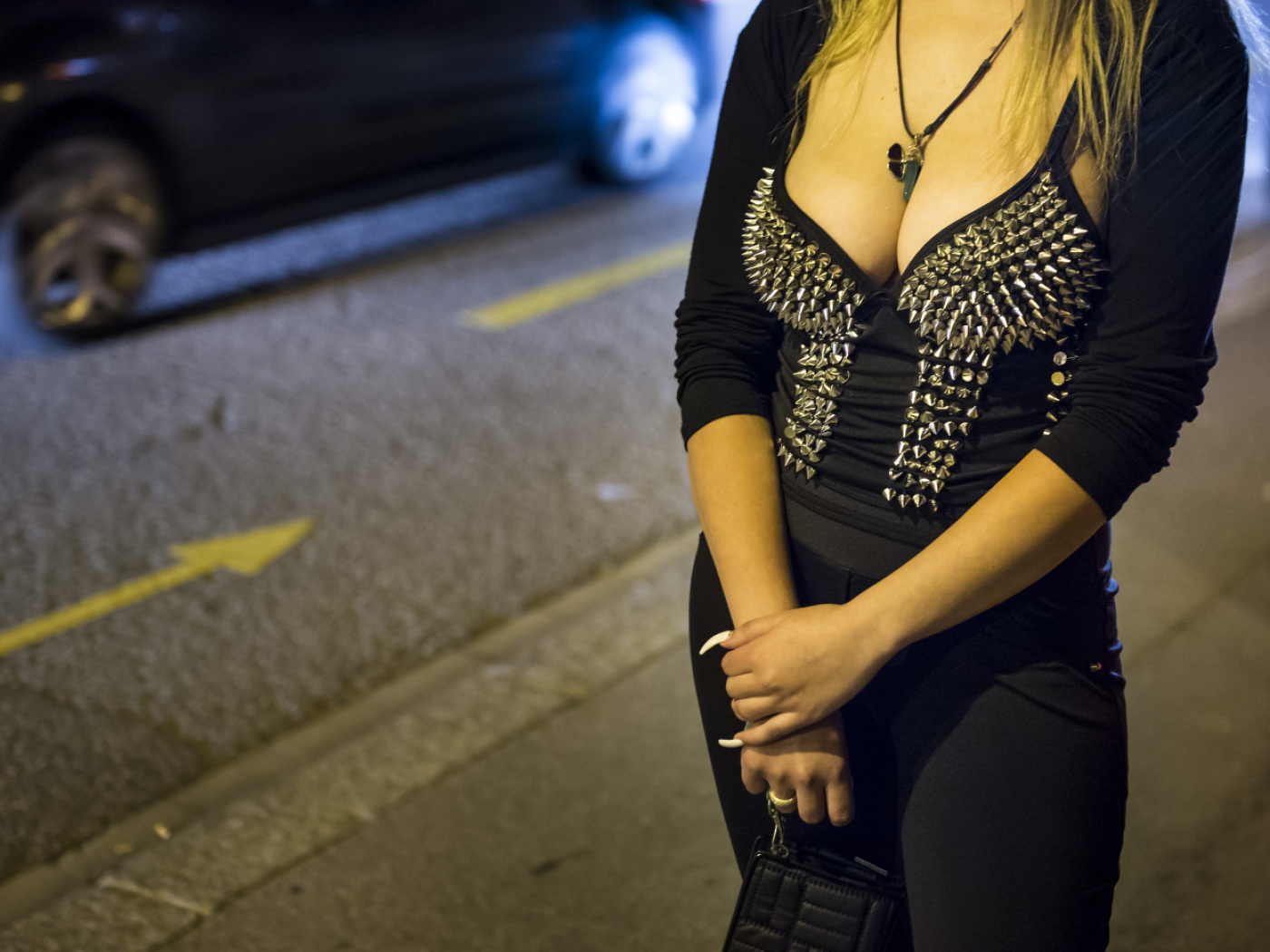A week of skiing in Switzerland will be more expensive in 2025

A week of skiing during the annual school sports holiday will once again be more expensive than in the previous year. The average prices for fun on the slopes in the first week of March 2025 will be 6% higher.
However, this means that the cost of a week’s ski vacation this winter is “pleasingly stable” after the significant price increases of recent years, according to a study by Bank Cler and the economic research institute BAK Economics, which was published on Thursday.
+Get the most important news from Switzerland in your inbox
Furthermore, not everyone has to spend more money. Total expenditure for families has fallen by 4%. This means that a family of four pays CHF5,604 ($6,244), compared to CHF5,832 a year earlier. With the exception of ski school costs, all expenditure items, including accommodation, ski pass and ski equipment hire, have become slightly cheaper for this group. Food, entertainment and travel costs were not included in the study.
Couples and students pay more
Couples, on the other hand, will have to pay 13% more for a week’s ski vacation in the period from March 1 to 8. Specifically, the average total costs for a couple have risen to CHF5,400 from CHF4,764 in the previous year. Students staying three to an apartment also have to pay an increase of 5%.
+ Swiss Alpine ski resorts face 40% drop in snow days
This is mainly due to the rise in accommodation prices, said the study. While a family with two children rent a more upmarket apartment via Airbnb, students would also book a cheaper apartment on Airbnb. In contrast, the sample couple in the study stays in a four-star hotel.
Across all destinations, prices for accommodation have risen by an average of 11%, but not equally for all comparison groups. While the costs for families have fallen by 5%, couples pay 20% more and students 10% more for a week’s accommodation.
According to the study, there are large price differences between the various ski resorts, but prices can also vary greatly within individual regions. “To save costs, it is advisable to look for accommodation early in the year,” the study said.
Zermatt the most expensive
The most expensive destinations for families are Zermatt, with an average weekly price of CHF7,697, St. Moritz (CHF6,707) and Verbier (CHF6,648). The cheapest ski resorts are Airolo (CHF3,364 francs), Engelberg-Titlis (CHF4,206) and Adelboden-Lenk (CHF4,310).
+ Going downhill: more than 50 Swiss ski lifts are rusting away
A couple with high expectations has to pay the most in Zermatt (CHF8,019), Verbier (CHF7,889) and Gstaad (CHF6,267). Airolo (CHF2,382), Adelboden-Lenk (CHF4,141) and Andermatt-Sedrun (CHF4,419) charge the least.
St. Moritz is the most expensive for a student in a three-person apartment, at CHF2,096. It is followed by the Jungfrau region (CHF1,976) and Zermatt (CHF1,965). The cheapest destination is undisputedly Airolo, with an average weekly price of CHF835, ahead of Engelberg-Titlis (CHF1,143) and Adelboden-Lenk (CHF1,240).
Ski passes slightly cheaper on average
The good news: “The prices for eight-day ski passes have fallen by 3% on average. This could be due to the flexible price models that are becoming increasingly popular, especially in larger resorts,” the study said. It is almost common for prices to be adjusted according to the time of booking, the season, the day of the week or the expected demand.
+ A call for safer ski slopes in Switzerland
“If you are sure you want to ski the whole week, you have an advantage if you book your ski passes early. However, the dynamic price models create a lack of transparency and meet with little approval from many customers,” said the study. Destinations such as Andermatt-Sedrun have therefore returned to fixed prices.
Price changes for ski rental and ski schools were minimal. While prices for the rental of ski equipment have fallen by an average of 1%, the costs for ski schools are 1% higher than in the previous year.
The study analyzed 14 different ski regions: St. Moritz, Davos-Klosters, Flims-Laax-Falera and Arosa-Lenzerheide in Graubünden; Andermatt-Sedrun and Engelberg-Titlis in central Switzerland; Gstaad, the Jungfrau region and Adelboden-Lenk in the Bernese Oberland; Zermatt, the Aletsch Arena, Verbier and Saas-Fee in Valais; and Airolo in Ticino.
Translated from German with DeepL/gw
This news story has been written and carefully fact-checked by an external editorial team. At SWI swissinfo.ch we select the most relevant news for an international audience and use automatic translation tools such as DeepL to translate it into English. Providing you with automatically translated news gives us the time to write more in-depth articles.
If you want to know more about how we work, have a look here, if you want to learn more about how we use technology, click here, and if you have feedback on this news story please write to english@swissinfo.ch.

In compliance with the JTI standards
More: SWI swissinfo.ch certified by the Journalism Trust Initiative


















You can find an overview of ongoing debates with our journalists here . Please join us!
If you want to start a conversation about a topic raised in this article or want to report factual errors, email us at english@swissinfo.ch.